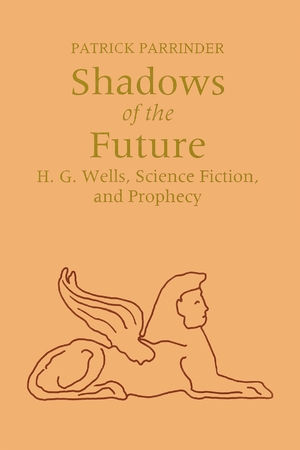Description
H. G. Wells—the inventor of the concept of the time machine and the phrase “the Shape of Things to Come”—described his life’s work as one of “critical anticipation.” Shadows of the Future identifies the attempt to imagine possible futures as the unifying principle behind Wells’s diverse and sometimes wayward literary career. The book unravels the complex layers of meaning in The Time Machine, and shows how throughout his life he sought to exploit the potential of literary and cultural prophecy in new ways. Described by John Middleton Murry as “the last prophet of bourgeois Europe,” he was also its first futurologist.
In Shadows of the Future Wells’s assumption of the prophet’s role is related to his championship of the modern scientific outlook, and to the theory and practice of science fiction and utopian literature. Parrinder explores the connections between novelty and repetition, between imagining the future and imagining the past, and between prophecy and parody as literary modes. Wells’s science fiction is reexamined both as a projection of the cosmology implicit in the writings of Darwin and Huxley, and as a new variation on the Romantic and Enlightenment themes of such earlier authors as Blake, Gibbon, and Mary Shelley. Later chapters relate Wells’s fiction to his nonfiction and look at the uneasy relationship of his utopianism to literary prophecy, and at the paradoxes inherent in the militant internationalism of the ” prophet at large.” Finally, Wells’s influence is traced in a study of the antiutopian fictions of Zamyatin and Orwell, and in a broad account of the connections between science fiction and the scientific outlook down to our own time.
About the Author
Patrick Parrinder, a leading international authority on H. G. Wells, is professor of English in the University of Reading and has been Visiting Professor at the University of Illinois at Urbana-Champaign, McGill University, and the University of California, Santa Barbara. He was chairman of the H. G. Wells Society. Parrinder is the author or editor of numerous works on Wells, as well as the author of James Joyce, The Failure of Theory: Essays on Criticism and Contemporary Fiction, and Authors and Authority: English and American Criticism 1750-1990.


